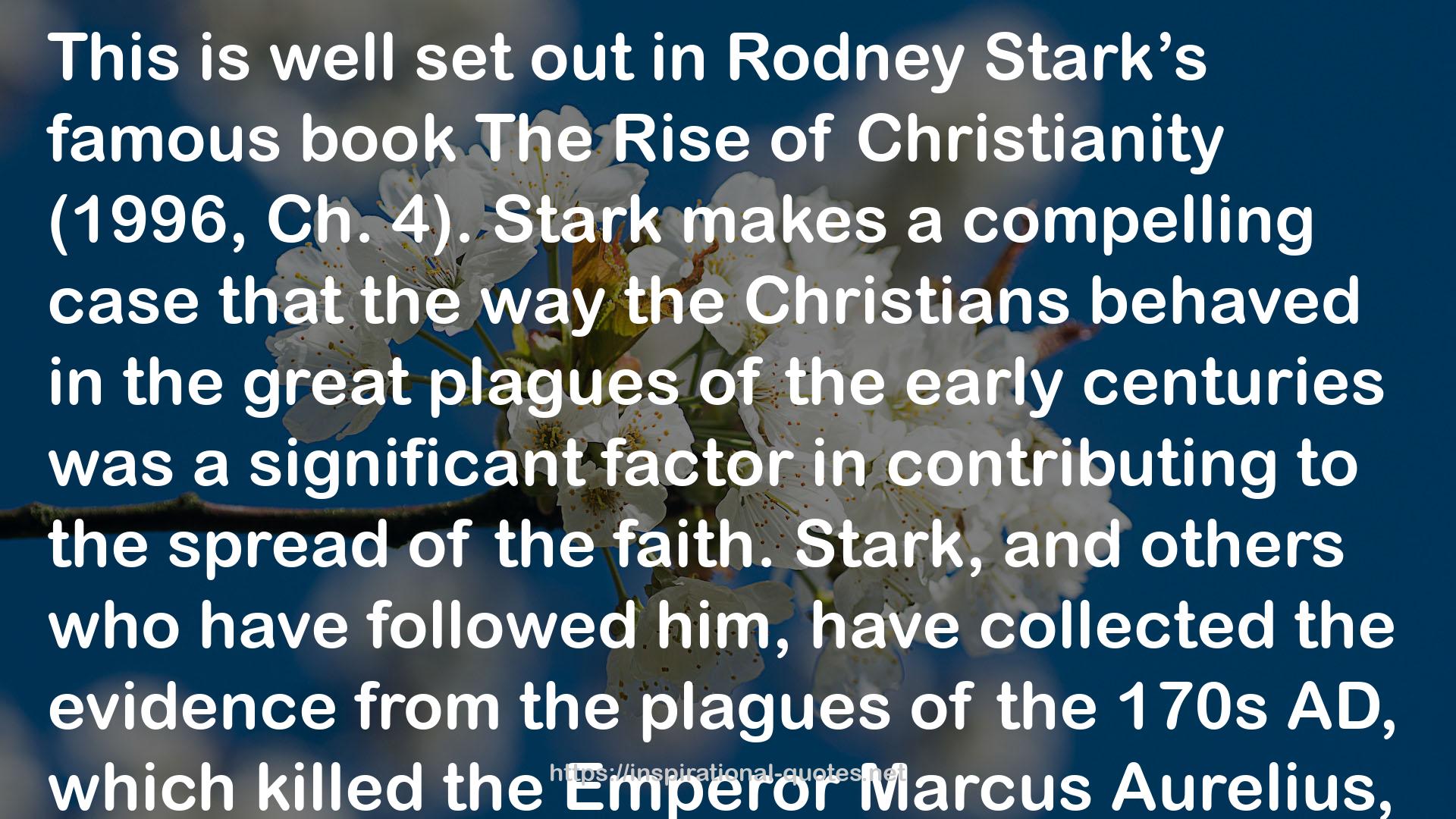" This is well set out in Rodney Stark’s famous book The Rise of Christianity (1996, Ch. 4). Stark makes a compelling case that the way the Christians behaved in the great plagues of the early centuries was a significant factor in contributing to the spread of the faith. Stark, and others who have followed him, have collected the evidence from the plagues of the 170s AD, which killed the Emperor Marcus Aurelius, and the 250s. (Nobody is quite sure what diseases they were. One might have been smallpox, the other measles, both killers when attacking unprepared populations.) The emperor Julian, who tried to deconvert the Roman empire in the late fourth century after it had become officially Christian under Constantine, complained that the Christians were much better at looking after the sick, and for that matter the poor, than the ordinary non-Christian population. He was trying to lock the stable door after the horse had bolted. The Christians were being for the world what Jesus had been for Israel. People took notice. Something new was happening. "
― N.T. Wright , God and the Pandemic: A Christian Reflection on the Coronavirus and Its Aftermath
